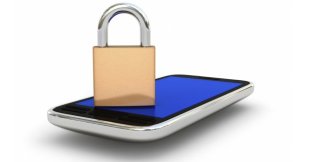
Is your voicemail secure from unwanted guests?
You may not be a hot shot executive or a well known politician, but should you become the target of an insidious hacking attempt, your mobile device will likely be a top priority. Is your phone — and the sensitive information in your voicemail — protected from unwanted intruders? Here are a few simple precautions you can take that will go a long way to giving you peace of mind.
Change your default passcode
When calling from an outside line, you can check the voice mailbox of most mobile phones simply by pressing "0" or "#" when the recorded greeting begins playing. This means that even if you remain in possession of your phone the entire time, your voicemail could still potentially be accessed by an anonymous party.
When you first set up a new voicemail account — whenever you get a new phone or switch service providers — your voicemail password almost always defaults to a simple set of digits. This code can range from hacker-friendly combinations like "1111" and "1234" to the last 4 digits of your Social Security number. Whatever the case, this is when you inbox is the most vulnerable, as anyone attempting to access your account without your knowledge will certainly try codes like these before all others.
The best thing you can do is change your code before you even leave the store. When getting your new handset or setting up a new account at a carrier location, make sure that you take the time to learn how to change your passcode. This is a service that the store associate will be happy to assist you with, as making sure your account is secure makes them look good as well.
Picking the right passcode is important
When choosing a new code, be as unpredictable as possible. There's no point in changing your combination if you end up picking "8888" as the new one. Here is a list of things to avoid when choosing your new passcode:
- Numbers in sequence (1234)
- Dates, years (7611, 1989)
- Repeating numbers (8888, 1122)
- Spelling out words (LOVE = 5683)
- Social Security Numbers (This one should be obvious)
The best passwords are ones that hold no significance to you whatsoever, so be as random as possible.
Keep your phone locked
Misplacing your phone can be a scary experience indeed, and new smartphones are particularly at risk when they fall into the wrong hands. Built-in voicemail apps allow you to simply touch a new message in order to check it without having to sign in or verify your identity.
Because of this, ensuring your phone is always kept locked is more important than ever. All smartphones include some type of locking feature, and most allow you to program complex letter and number combinations to secure your device. As was stated above, randomness is key, and locking your phone with the year you graduated college or the name of your first born child simply won't cut it.
Most non-smartphones will still require you to call in to a voicemail number and provide a passcode before allowing access to the inbox. This makes older phones somewhat more secure in this regard, but locking these devices will provide yet another level of security as well.
Call your wireless company
Perhaps you already have a secure passcode and your phone is locked down tighter than Fort Knox. If you assume those precautions make you completely immune to the tricks of phone hackers, you might want to think again. A simple call to your phone carrier could have your voicemail code reset to an easy-to-guess default combination in just minutes.
Most carriers require passwords or other personal information in order to access your account and reset your phone, but this info can be even easier to obtain than your code itself. A quick call to your wireless company will reveal what information is needed to confirm identity, and most will allow you to set additional codes or levels of confirmation that will keep you from being victimized by individuals claiming to have clearance.
Learn from their mistakes
The techniques used by the journalists at the now-defunct News of the World would have been completely useless if the victims had simply taken the time to make their accounts less vulnerable. According to police documentation, default codes and account breaches were the key weak points that allowed hackers to glean information from the inboxes of the unsuspecting mobile phone users.
The security measures detailed above are things you can do right now to protect yourself from the same type of breach, and will ensure that your information remains secure at all times.
More from Tecca:
No comments:
Post a Comment